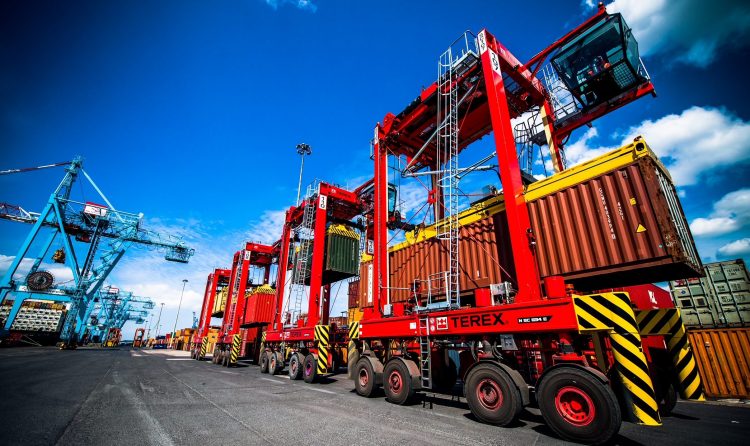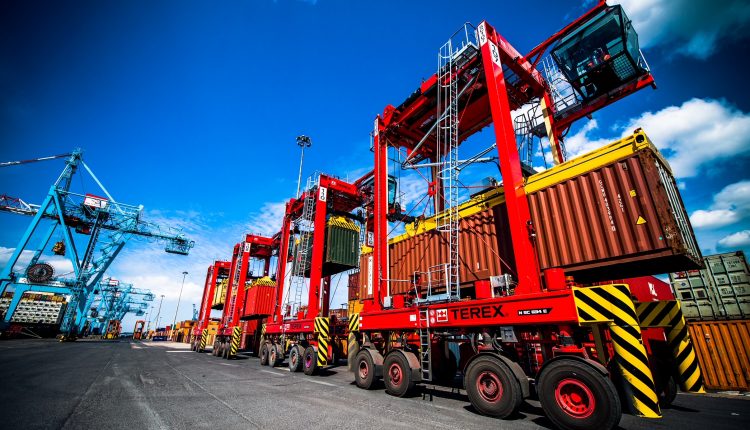Port vehicles switch to slash emissions by 70%
Port of Liverpool owner Peel Ports says vehicles at its UK ports will switch to greener fuels in a move that will slash carbon emissions by 70%. Tony McDonough reports

Vehicles used across the Port of Liverpool and at other UK ports owned by Peel Ports are being switched to greener fuels in a move that will slash carbon emissions by 70%.
Peel Ports, one of the UK’s largest port operators, is to use greener alternative fuels for straddle carriers and plant equipment across the majority of its estate by March 31, in what it describes as an “industry-leading move”.
As well as the Port of Liverpool, Peel Ports also owns and operates facilities at Heysham, Medway, Clydeport and Great Yarmouth, as well as the Manchester Ship Canal. It also operates a container terminal at Dublin in the Republic of Ireland.
READ MORE: Peel Ports shakes up its top team
READ MORE: Peel Ports completes £140m port expansion
The company has a stated ambition to become a net zero port operator by 2040. Its wheeled asset and procurement teams started the process to address the carbon emission challenge for its plant and straddle carriers around 12 months ago.
It worked closely with manufacturers such as JCB, Terberg and Combi-lift, among others. Testing with the new fuels started in November last year. The transfer to greener fuels will see 45% of Peel Ports’ plant equipment fleet moved to hydrotreated vegetable oil (HVO), with 29% to electric throughout 2022.
The group is also working to move the remainder of its fleet to less polluting fuel alternatives as these become available. It says the conversion of 3m litres of diesel fuel to HVO will mean an annual carbon emission reduction of at least 70%, or 5,500 tonnes, equivalent to taking 4,500 cars off the local roads for the whole year.

HVO biodiesel uses plant-based oils in its composition, which reduces the amount of CO2 emissions to the atmosphere by up to 90%. It can also be substituted directly for diesel fuel. In addition, it is broadly considered a greener option to diesel due to its lower NOx emissions.
Lewis McIntyre, managing director ports services at Peel Ports, said: “We are working hard to become a greener Port operator and looking into everything we do, making incremental changes to reach our net zero ambitions by 2040.
“The change in legislation in rebated fuels provided an opportunity to address the powering of our plant equipment and a further move towards our carbon neutrality goals. While these transition fuels will offer a temporary improvement, they don’t provide a long-term solution.
“We are already working with manufacturers and suppliers who are developing the next generation of sustainable land equipment for all our operations.”
The port group has already replaced 50% of its diesel vans with a new electric fleet in 2021 and has a planned renewal programme to either electrify or convert the rest of the fleet to cleaner fuels by the end of this year, having earned the Commercial Fleet of the Year accolade by the Green Fleet Awards for the achievement.

